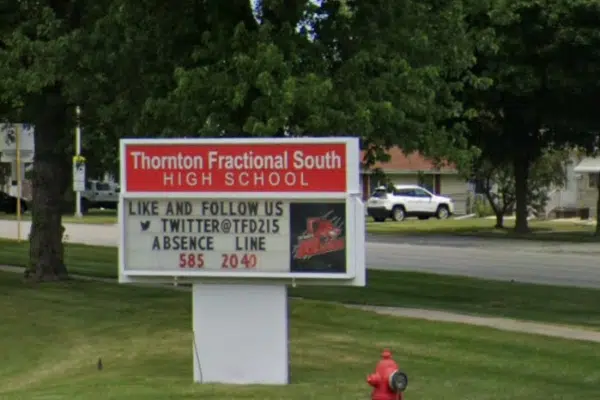
Charges have been filed against Aaron Richmond, a 31-year-old former high school coach, in connection with the alleged sexual assault of a student, according to MSN. This incident reportedly took place in March 2024 at Richmond's former residence in Glenwood.
According to Glenwood police, Richmond, who previously coached at Thornton Fractional South High School located at 18500 Burnham Ave, Lansing, IL 60438, is facing serious charges including aggravated criminal sexual abuse and aggravated criminal sexual assault. The allegations suggest that Richmond deceived the 16-year-old victim into believing they were being driven to a sporting event.
Instead of heading to the event, police allege that Richmond drove the victim to his home in the 100 block of North Pine Lane. After inviting the victim inside on the pretense of gathering items for the event, he is accused of assaulting the student. Following the incident, Richmond reportedly transported the victim to the event while instructing them to remain silent about the occurrence.
After the victim confided in family members and mandated reporters, the police were notified, prompting a thorough investigation supported by the La Rabida Child Advocacy Center. The Cook County State’s Attorney’s Office subsequently reviewed the case and approved the charges against Richmond.

In the aftermath of a troubling case involving a former high school coach sexually assaulting a student, many parents are left wondering about their options regarding legal recourse for victims of school sexual abuse. To provide clarity on this pressing issue, we spoke with Erv Nevitt, an experienced attorney specializing in sexual abuse law in Illinois. He shares valuable information on the rights available to victims and their families, as well as the steps they can take to hold negligent parties accountable.
Editor Darla Medina: Many parents may feel overwhelmed after hearing about cases like the one involving Aaron Richmond. What legal rights do victims and their families have in these situations?
Attorney Erv Nevitt: Victims of sexual abuse have several legal avenues available to them. First and foremost, they can pursue criminal charges against the perpetrator, which is essential for seeking justice. Beyond that, families can also file civil lawsuits against the abuser and potentially against any institutions that may have been negligent in their duty to protect the victim.
Medina: Can you explain how negligence might come into play in these cases?
Nevitt: Certainly. If a school or organization was aware of inappropriate behavior or failed to take action despite red flags, they could be found liable. This includes not conducting proper background checks or ignoring complaints from students or parents. Holding these entities accountable can be crucial in ensuring they take necessary steps to prevent future incidents.
Medina: What should parents do if they suspect their child has been abused by a coach?
Nevitt: The first step is to ensure the child's safety and well-being. They should report any suspicions to the authorities immediately. It’s also important to document everything—dates, conversations, and any evidence. Consulting with a legal professional who specializes in sexual abuse cases can provide additional guidance on how to proceed.
Medina: How can victims and their families find the right attorney for their case?
Nevitt: Look for attorneys who have experience specifically in sexual abuse cases and a strong track record of success. It's important to feel comfortable discussing sensitive issues, so finding someone who approaches the case with empathy and understanding can make a significant difference.
Medina: Thank you, for sharing your knowledge on this difficult topic. Your insights will undoubtedly help parents and victims navigate their options during such challenging times.
If you or a loved one has experienced sexual abuse by a high school coach, don’t navigate this difficult journey alone. It’s vital to understand your rights and options. Contact us today for a free consultation to discuss your case and the support available to you. Together, we can work towards accountability and healing. Your voice matters, and we’re here to help.
 info@legalherald.com
info@legalherald.com